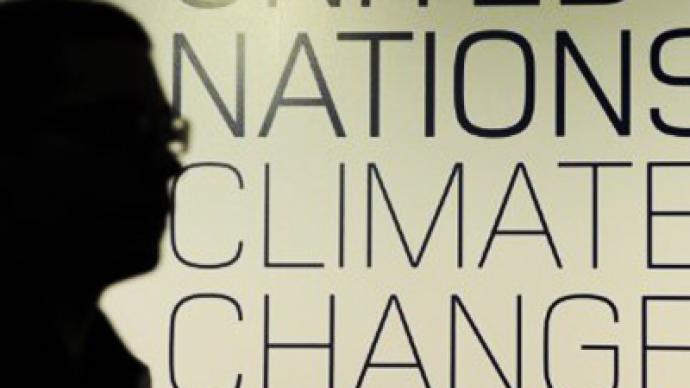The Climategate scandal is back, as more emails between leading climate scientists are posted online. The latest leak from the Climatic Research Unit at the University of East Anglia has re-ignited the wrangle around manmade climate change.
Much like the scandal of 2009, Tuesday’s leak comes just days before UN climate talks, set to kick off in Durban, South Africa on 28 November.Critics who have long accused climate scientists of cherry-picking their data to prove that manmade climate change exists, might feel vindicated by some messages. One email from a climate researcher identified as Overpeck reads: “The trick may be to decide on the main message and use that to guid[e] what’s included and what is left out.”Another scientist expressed his fears regarding potential data manipulation: “Observations do not show rising temperatures throughout the tropical troposphere unless you accept one single study and approach and discount a wealth of others.” The scientist went on to stress a “need to communicate the uncertainty and be honest.” It appears that various government bodies have put pressure on climate scientists to justify their own policy initiatives, ranging from restrictive environmental taxes and regulations, switching from fossil fuels to alternative sources of energy, to re-appropriating farm land for profitable biofuel schemes. Speaking of the governmental influence on climate change policy, one scientist said: “I can’t overstate the HUGE amount of political interest in the project as a message that the Government can give on climate change to help them tell their story. They want the story to be a very strong one and don’t want to be made to look foolish.”Based on the government-led drive, one email demonstrated the need to spin the climate change debate for public consumption:“Having established scale and urgency, the political challenge is then to turn this from an argument about the cost of cutting emissions – bad politics – to one about the value of a stable climate – much better politics. […] the most valuable thing to do is to tell the story about abrupt change as vividly as possible.”Amid mounting pressure to come up with the right results, one scientist said “they’ll probably kill us” if the researchers’ findings indicated that climate change had resulted from natural fluctuations and not manmade actions. These are a few excerpts from a cache of 5,000 previously unreleased emails, uploaded onto a Russian server Tuesday by a group calling itself FOIA (FOIA usually stands for Freedom of Information Act).And while the latest e-mails appear to be authentic, the University of East Anglia has been unable to confirm this, on account of the bulk of information. Nevertheless, one of the emailers, climate scientist professor Michael Mann, believes they are genuine. The fact that none of the emails postdate those released in 2009 suggests that the latest collection was most likely obtained during the initial Climatic Research Unit (CRU) controversy. None of the information is likely to be new, but it does show that the security breach appears much larger than initially thought, as FOIA claim to have obtained some 220,000 emails in total.Apart from the 5,000 emails released online, dozens of excerpts have been gathered into a single "read me" file which has already been widely circulated in the blogosphere. Many emails pointed at discomfort some scientists apparently had with the narrative put forward by the Intergovernmental Panel on Climate Change (IPCC). An excerpt from a scientist identified as Carter expressed such reservations: “I also think the science is being manipulated to put a political spin on it which for all our sakes might not be too clever in the long run.” Mann for his part has called the latest leak “truly pathetic,” alleging skeptics have been forced to rely on black PR as they’ve been unable to challenge the actual science."They have instead turned to smear, innuendo, criminal hacking of websites, and leaking out-of-context snippets of personal emails in their effort to try to confuse the public about the science and thereby forestall any action to combat this critical threat," Mann told the New Scientist. Critics, however, contend that the latest collection of emails show that political activism, as opposed to science, is what really drives the global warming debate. The Climategate controversy erupted in November 2009, when the server at the CRU of the University of East Anglia was hacked in the run-up to the Copenhagen Summit on Climate Change. Those who obtained the 160 MB of information then went on to copy thousands of emails and related files to numerous internet sites. While many climate scientists believe the leak uncovered no evidence of fraud or scientific misconduct, the perceived lack of openness on the part of the researchers greatly undermined public belief in manmade climate change.

